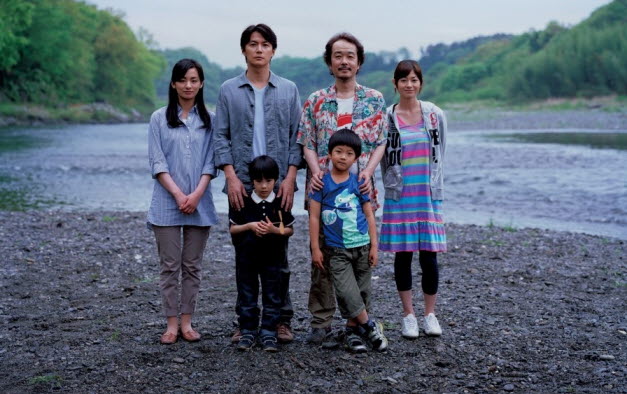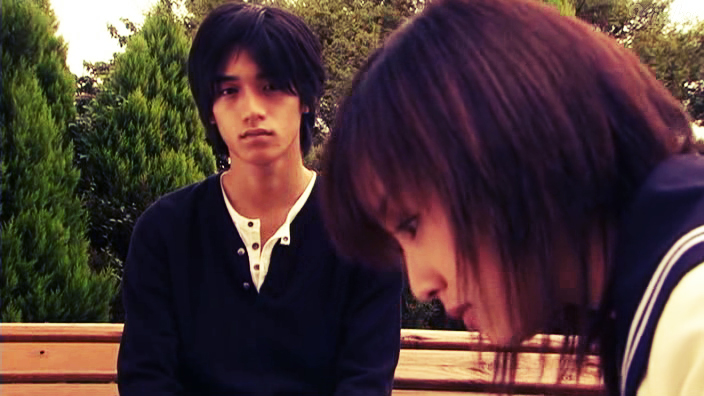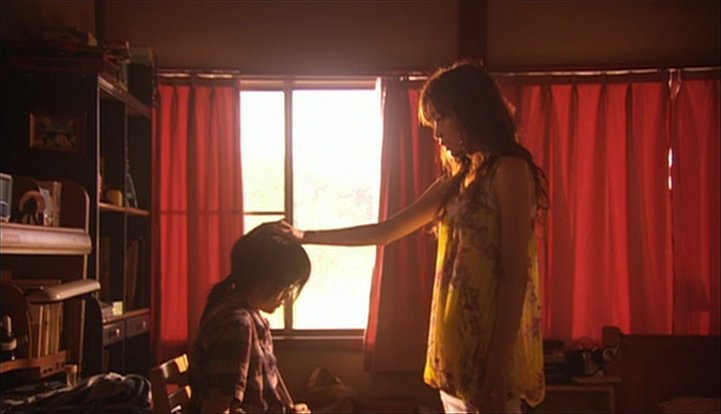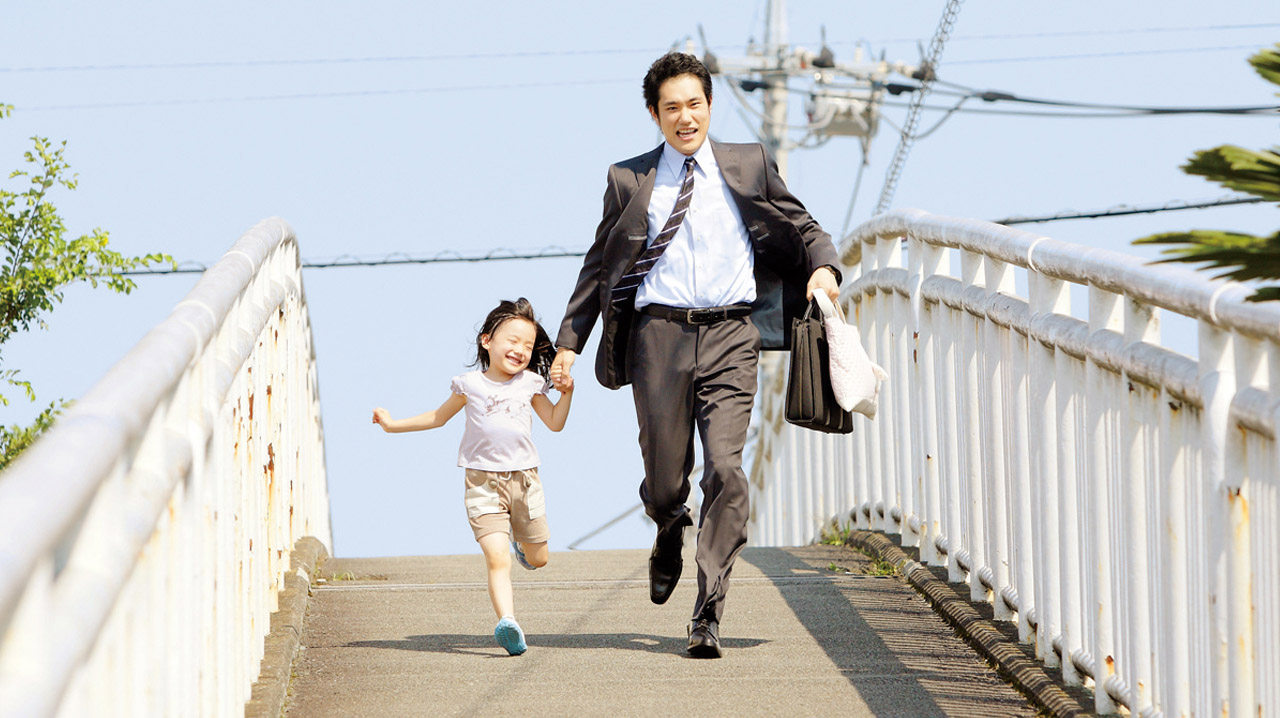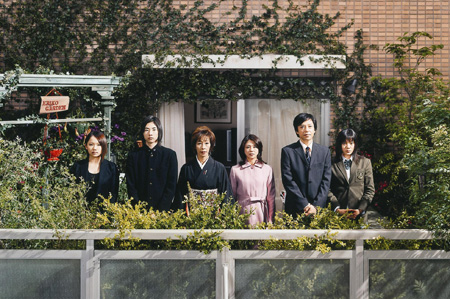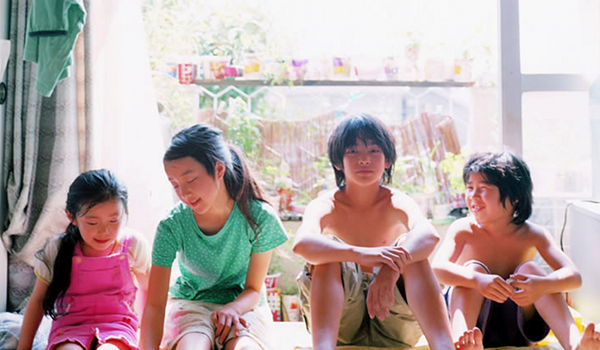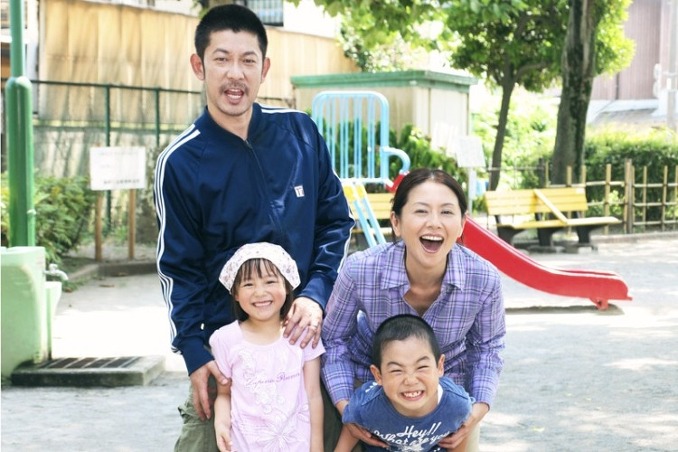Since the 1950s, with internationally acclaimed films like Akira Kurosawa’s “To Live”, Yasujiro Ozu’s “Tokyo Story” and Kenji Mizoguchi’s “Tales of Ugetsu”, Japanese filmmakers have been excelling in the family drama genre, one that still produces most of the country’s masterpieces.
Although there have been some changes, the essential parts of the category are still present: Realism and minimalism, slow pace without boredom, underlying drama, great attention to every detail and accomplished acting, all of which exist in these modern productions. Here is a list of some of the best ones.
12. One Litre Of Tears (Riki Okamura, 2009)
Based on the diary of Aya Kito that sold over a million copies in Japan and spawned a TV series, “One Litre Of Tears” is the most tragic film on this list.
Dr. Yamamoto diagnoses Aya Kito, a 15-year-old girl, with a fatal and incurable disease that handicaps the body. After the initial shock, Aya tries to cope with the disease, while writing about her experiences in her diary. However, her life, even as she tries to be as optimistic and cheerful as possible, is a downward spiral.
Riki Okamura directs in an exceedingly realistic way the struggles of a girl who tries to retain hope and act normal through her pre-defined path. At the same time, her family also experiences the tragedy, though their sense of hopelessness is larger because they also have to live with the sense of loss her inevitable death will bring. What makes their burden lighter is the way she confronts her situation, never backing down or losing her composure, even in her last moments.
Asae Onishi gives a great performance as Aya, in a literally tearful film.
11. Funuke Show Some Love, You Losers (Daihachi Yoshida, 2009)
Based on the homonymous novel by Yukiko Motoya, “Funuke” successfully combines the family drama genre with black comedy and teenage action.
The story revolves around three siblings, and the spouse of one of that siblings, who are forced to face their past after their parents’ death and the return of their older sister, Sumika.
Sumika proves from the beginning how spoiled she is, making it clear that the sole reason for her return is to receive her cut from the will, in order to continue financing her mostly unsuccessful acting career. The brother, Shinji, who works as a woodcutter, explains that the family is actually broke and that they cannot continue financing her. Sumika, not having any alternative, then decides to stay.
The younger sister, Kyomi, has a genuine talent for manga drawing, although she seems to have quit and is the constant object of bullying by her sister. Somewhere between all that resides Shinji’s spouse, Machiko, an orphan who got married and moved to the countryside from Tokyo, in search for a simple, daily family life. Now though, she finds herself in the middle of family tension, incapable of helping in any way apart from keeping her inbred kindness. As the story progresses, a plethora of past family secrets are revealed.
Daihachi Yoshida’s strongest point in this specific movie is the depiction of so many dissimilar characters, although all of which are members of the same family and have to interact within the same environment. Another strong point of his is the presentation of so many different themes, like rural depopulation, domestic violence, the financial and social difficulties of rural life, show business, the felonry, etc.
Accordingly difficult is the depiction of the various genres we referred to in the prologue. Yoshida, however, manages to keep an extremely difficult balance among all of the aforementioned themes, producing a movie, neither very “light” nor exceedingly “heavy”. His accomplishment is even greater, taking into consideration that “Funuke” was his first movie. Also excellent is the depiction of the bucolic environment of the Japanese countryside.
The film incorporates a splendid female cast, chiefly among them gorgeous Erika Sato as the wonderfully awful Sumika, and Hiromi Nagasaku as the exceedingly kind Machiko.
10. Bunny Drop (Sabu, 2011)
Part of a very successful franchise that also includes a manga and an anime, “Bunny Drop” takes a lighter approach to the genre.
Daikichi Kawachi is 27 years old, single and a successful businessperson, but without being very rich. At a point, he returns to his family’s house, that he has not visited for a long time, to attend his grandfather’s funeral. Once there he discovers in amazement that a new member has been added to the family: the 6-year-old Rin Kaga, baseborn daughter of his deceased grandfather, from a woman tended to him the last few years.
Her mother has abandoned her and the rest of the family is determined to give her up for an adoption. In a moment of thoughtless enthusiasm, Daikichi decides to adopt the little girl, a decision that immediately makes him face on the hardships of single parenting.
With some help from his unwilling sister, he manages to overcome the initial problems, especially his utter lack of any experience bringing up a child. Nevertheless, at that point he realizes he cannot continue with his overly demanding job, and decides to demote himself to the storehouse of the company, where he discovers many people who wish to spend more time with their children.
Some issues continue to exist, but with the help of Yukari, a single mother whose son attends the same kindergarten, he learns how to be a better father.
Sabu splendidly sketches his characters, chiefly Daikichi and Rin, that move on the borders of realism with their choices and general attitude, as is usual with manga adaptations, but within an utterly realistic frame.
That frame is the everyday life in the highly capitalistic Japanese society, which is so harsh that actually forbids in principle simultaneous professional success and domestic happiness, especially in the large metropolis. The circumstances are even more difficult with single parenting.
Nevertheless, the primary target of “Bunny Drop” is mainly to entertain instead of perturbing its audience, definitely succeeding in that aspect. What separates it from the plethora of similar productions are the attractive protagonists (Kenichi Matsuyama as Daikichi Kawachi and Karina as Yukari) and the exquisite presence of Mana Ashida as Rin, who manages to steal the show whenever she appears.
9. Hanging Garden (Toshiaki Toyoda, 2005)
Based on the homonymous book by Mitsuyo Kakuta, “Hanging Garden” is Toshiaki Toyoda’s best movie to date.
The Kyobashis appear to be a regular family of four: Eriko, the mother, works part-time in a restaurant, otherwise busying herself with housekeeping. Takashi, the father, is a regular salary man. The two kids, Mana and Ko, 16 and 14 years old respectively, are students.
What makes the family special is that they have agreed, following an initiative of Etsuko’s, not to have any secrets and always be sincere with each other. Presumably, this results into constant awkward situations.
However, as the script deepens into the characters, the facade of regularity shutters. Takashi, who has not had intercourse with his wife for five years, retains two extramarital relationships, one of them his spouse’s colleague, where he often engages in sadomasochistic acts. The other woman, at some point, is hired by his son to tutor him, thus her regular visits at their home.
Ko clearly has sexual inclinations towards her and even asks her to have sex with him. Mana, who rarely attends school, spends her time shopping, getting photographed for adult magazines and even having sex with strangers. Eriko tries to cover her depression beneath a constant smile that retains even when she has violent thoughts about people.
Toyoda makes a movie regarding the concepts of sincerity and hypocrisy by pushing each to their extreme. The former by presenting what could happen if everybody was truthful all the time: For example, the whole family celebrates Mana’s first period, in a truly embarrassing scene.
The latter by presenting the actual lives of the family members, stating that everybody has secrets and feels the need to lie to keep them. At the same time, he makes a point of how dysfunctional families can be in the contemporary Japanese metropolis.
Toyoda excels in sketching his characters, analyzing all of them thoroughly, peaking at the smiling depression of Eriko, played by Kyoko Koizumi, who stands out in an otherwise formidable cast. However, he colors all of the above with an underlying sense of humor and a bit of surrealism, thus making the film less “heavy” than it could be.
“Hanging Garden” is also very visually impressive, with vivid colors painting the urban scenery, incorporating wonderful cinematography and production design.
8. Nobody Knows (Hirokazu Koreeda, 2004)
Inspired by a true 1988 incident known as the “affair of the four abandoned children of Sugamo”, “Nobody Knows” established Hirokazu Koreeda as a skilled filmmaker in directing child actors.
Four siblings from different fathers reside with their mother in a small apartment in Tokyo. According to her building proprietor, she appears to have only one son, Akira, the oldest of the four, while hiding the others in order to keep the rent at a minimum. At some point, she abandons them, leaving them only some money. Akira now has to take care of everyone, since the rest of the kids have to stay inside the house in fear of being noticed by the proprietor.
Koreeda directs a very carefully edited movie, whose initial point of excellence is the avoidance of becoming a bromide melodrama. His perspective is completely realistic and the script flows in a slow, minimalistic pace.
The allegory is obvious: The alienation of children in the cruel, lonely and irresponsible environment of the metropolis, and the social neglect of their constant needs of protection, love, ethical and emotional support.
Excellent performances by the 14-year-old Yuya Yagira, who won a number of awards including the one for Best Actor from the Cannes Film Festival and You, who plays the mother.
7. Kaasan Mom’s Life (Shotaro Kobayashi, 2011)
Based on the homonymous, autobiographical, and still ongoing manga by Rieko Saibara, this particular movie has a very interesting story behind its production.
Saibara used to be married to Yutaka Kamoshida, a war correspondent based in Bangkok. From the beginning, when they met in the mid 90s, he was already addicted to drugs and alcohol, though with her help he learn to stand on his feet and they together returned to Japan. They worked together on a number of publications until Kamoshida relapsed. They divorced in 2003 but they got together in 2006 when he decided to commit to a rehabilitation center.
What is peculiar about this film, is that while Kyoko Koizumi had been cast as the lead from the beginning, the role of Yutaka eventually went to Masatoshi Nagashe, her ex-husband, in a quite surprising parallel.
The script follows the actual story very closely. Rieko is a famous manga artist who works from her home, with an assistant whose main duty is to fix the mess Rieko usually makes. She lives together with her two children, Bunji and Fumi, her mother and her alcoholic husband, Yutaka.
Rieko’s everyday life is quite difficult, having to address family troubles, the upbringing of her children, her mother’s acrimonious comments and developing ideas for her manga. Yutaka is a good father, but he does not stop drinking, despite her warnings and his own promises.
Kobayashi makes an excellent job of adapting the manga, creating a movie that can stand on its own, something relatively uncommon, since the majority of similar movies usually demand that the spectator already know the concept.
The film begins as a comedy; however, by employing a heap of dark humor he transforms it into a family drama, while avoiding the reefs of the melodrama and the didacticism regarding alcoholism destroying families. Thus, he retains a pleasant tone throughout the majority of the movie, even if some very dramatic scenes appear now and then.
Kyoko Koizumi does a wonderful job as Rieko, presenting a variety of feelings in a very natural way. Masatoshi Nagashe as Yutaka is superb as a raging alcoholic, who desperately tries to change but fails every time. Their chemistry is probably the film’s biggest trump card.
